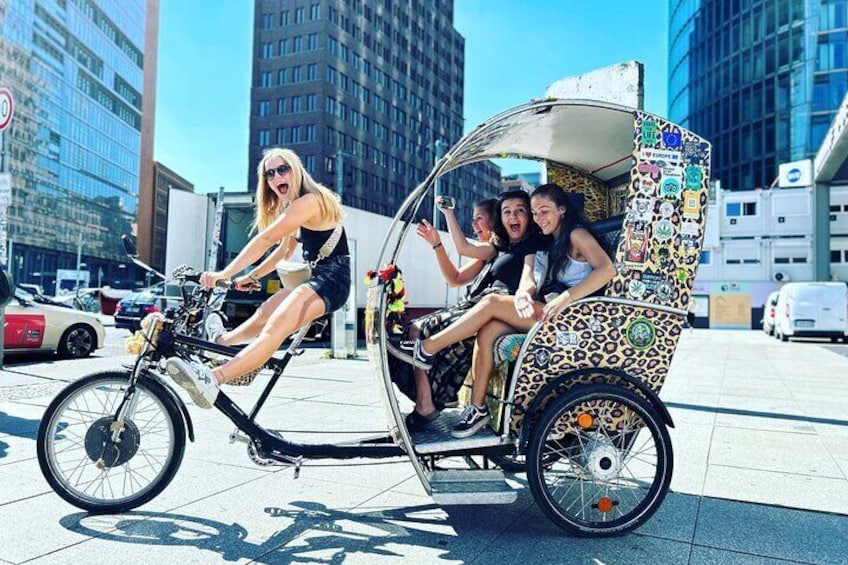
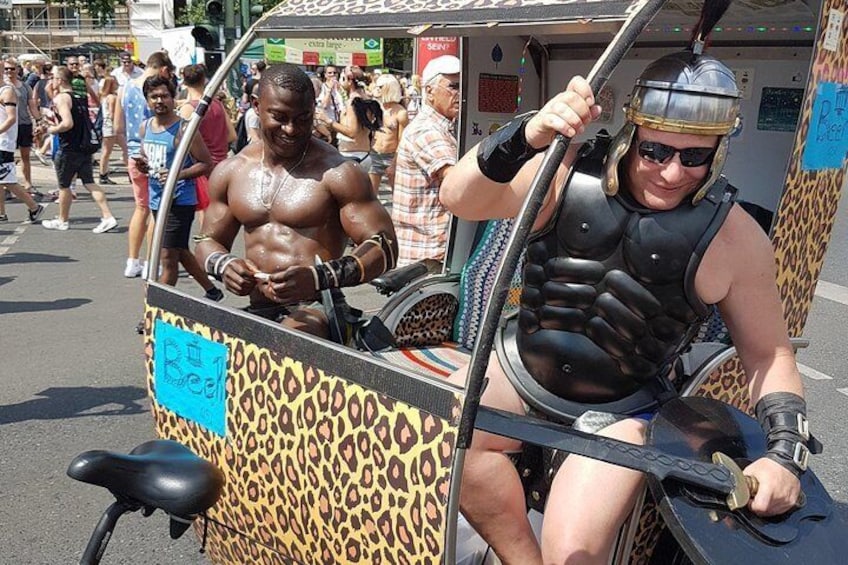
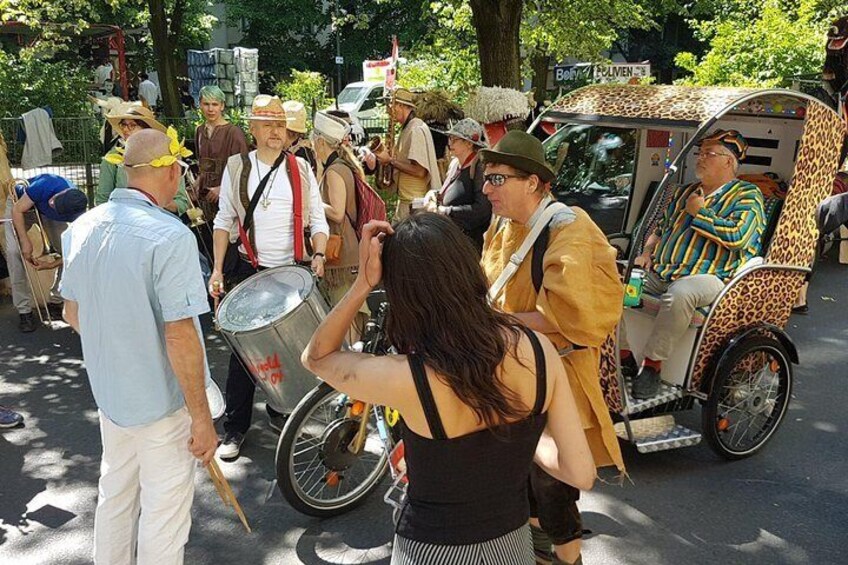
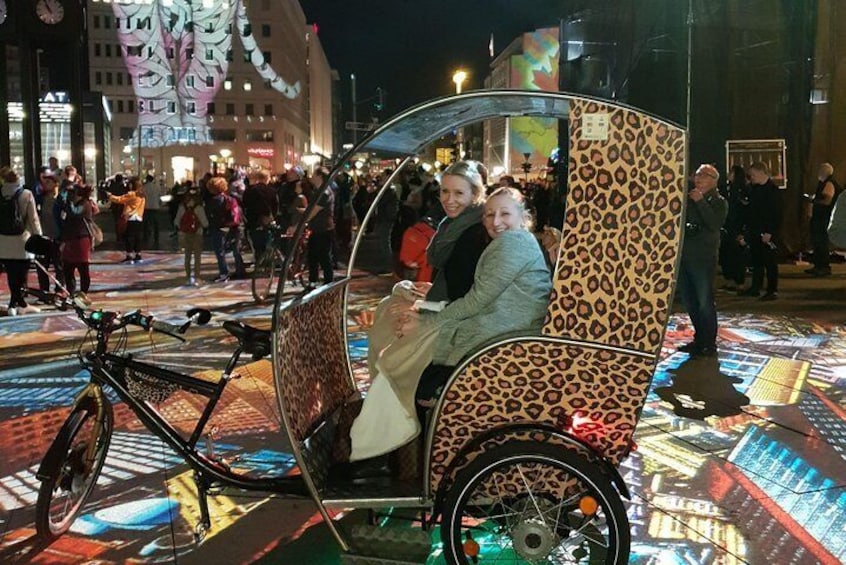
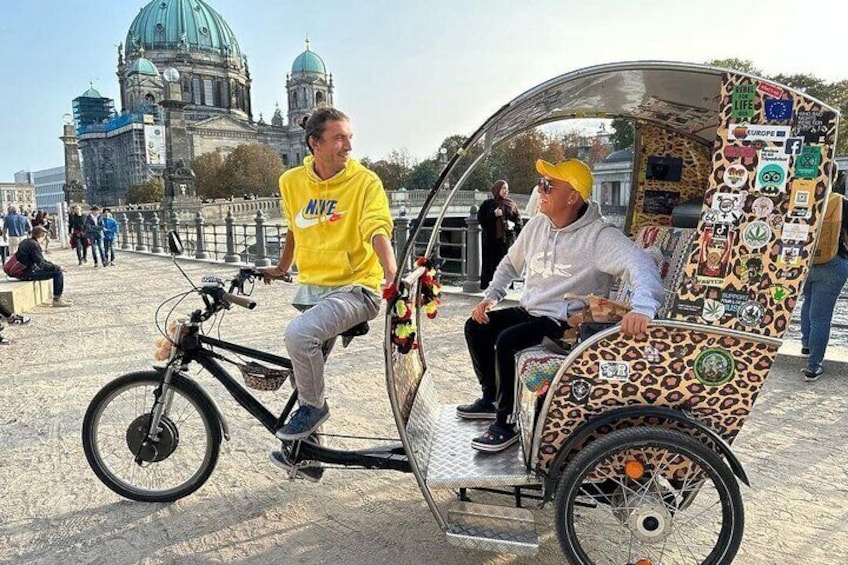
Rickshaw Tours Berlin - Groups of up to 16 people with several rickshaws
By Rikscha & Bier Bike & Party Beer Bike - Leo Rickshaw Tours
7.4/10
7.4 out of 10Free cancellation available
Features
Overview
Activity location
Meeting/Redemption Point
Check availability
60min. Rickshaw tour
Duration: 1 hour
Pickup included
Price details
Total
10% off
120min rickshaw tour
Duration: 2 hours
Pickup included
Price details
Total
10% off
What's included, what's not
Know before you book
- Specialised infant seats are available
- Not recommended for pregnant travellers
- Service animals allowed
- Public transport options are available nearby
- Infants and small children can ride in a pram or stroller
- All areas and surfaces are wheelchair accessible
- Transport options are wheelchair accessible
- Suitable for all physical fitness levels
- Wheelchair accessible
Activity itinerary
Location
Activity location
Meeting/Redemption Point
Best Deals on Things to Do
Experience the wonders of the world up close with great deals on things to do near and far. Expedia offers one-of-a-kind activities that allow you to explore Berlin your way. Whether you love nature, culture, food or a bit of adventure, we have the perfect activity for you.
Top experiences in Berlin
With so many things to do in Berlin, planning the perfect day out may seem like a daunting task. Expedia is here to take the hassle out of finding the best attractions, tours and activities in Berlin. Families, couples and business travellers can all find the perfect activity in Berlin to create life-long memories with the help of Expedia.